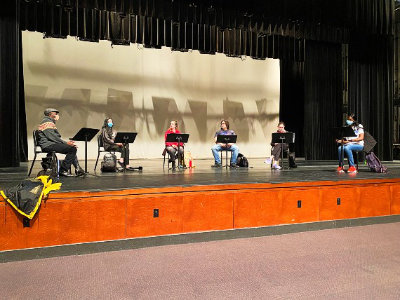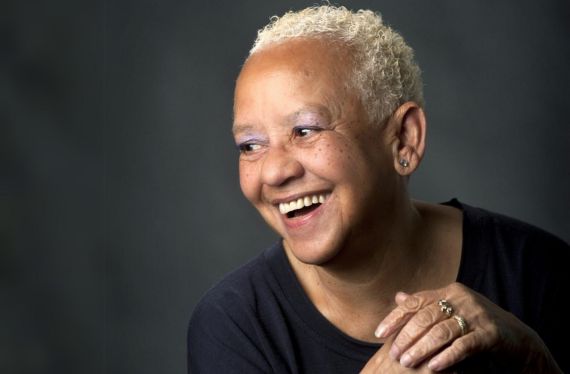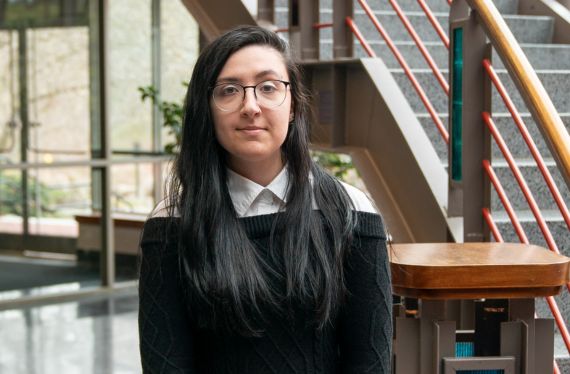 The words of Frederick Douglass’ well-known “What To The Slave is the Fourth of July” speech will fill Regis College’s Fine Arts Center on Tuesday, November 2, during a unique event featuring Regis students.
The words of Frederick Douglass’ well-known “What To The Slave is the Fourth of July” speech will fill Regis College’s Fine Arts Center on Tuesday, November 2, during a unique event featuring Regis students.
“I volunteered to do this because I wanted to step out of my comfort zone in terms of public speaking and also have the chance to bring to light this important text,” said Jacob Pardo ’23.
The university received a grant from Mass Humanities provided by the Massachusetts Cultural Council to stage the “Reading Frederick Douglass Together” event and has tapped literary performer and educator Regie Gibson to lead the performance along with a group of students to best embody Douglass’ words.
“This is a speech I have heard so many times but have never had the chance to perform,” Gibson said. “It is important for us to recognize not only the words that Douglass used but how we get them and his poetry across.”
Douglass gave the speech at an Independence Day celebration on July 5, 1852, in Rochester, New York. Gibson and five Regis students in English Professor Julia Lisella’s Traditions in African American Literature course will speak the more than 4,000-word address.
“There are a lot of emotions and they are very different throughout the speech,” said Isabelle Vernalia ‘23. “I am really excited to be a part of this.”
In addition to helping plan the event, Gibson has visited with Regis students in Lisella’s Traditions in African American Literature and Exploring the Humanities classes to share his experiences as a poet and performer, and discuss the legacy of Douglass’ writing and activism. Following the performance, students will lead discussion groups with audience members to encourage deeper engagement with the speech.
“My students have been struck by Douglass’ ability to name the systemic racist practices that have tarnished this country’s promises of freedom and justice for all,” said Lisella. “The students and Regie are looking forward to conveying the power and the sheer beauty of this speech to their audience. We don’t often get a chance to listen closely to the transformative voices in our history and to engage with them together.”

